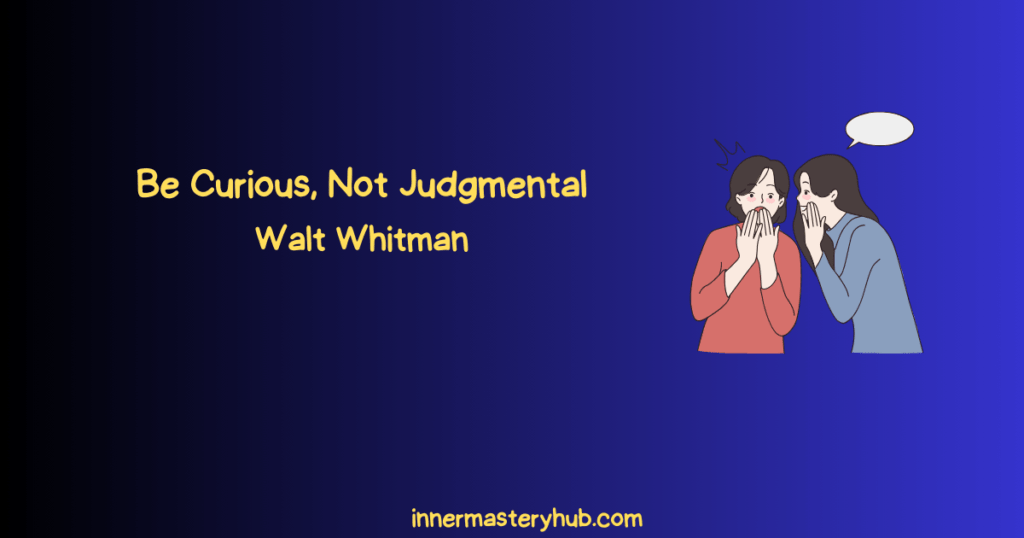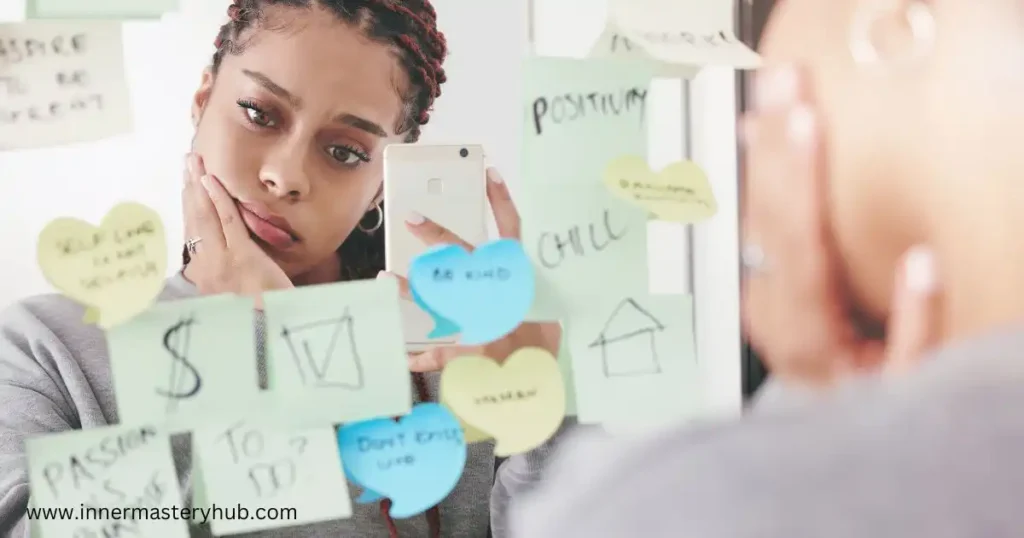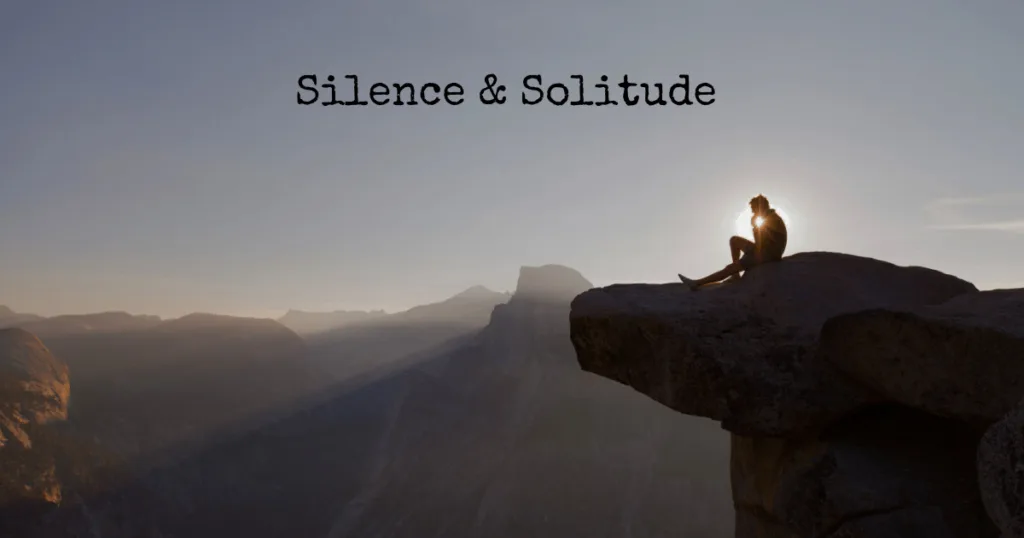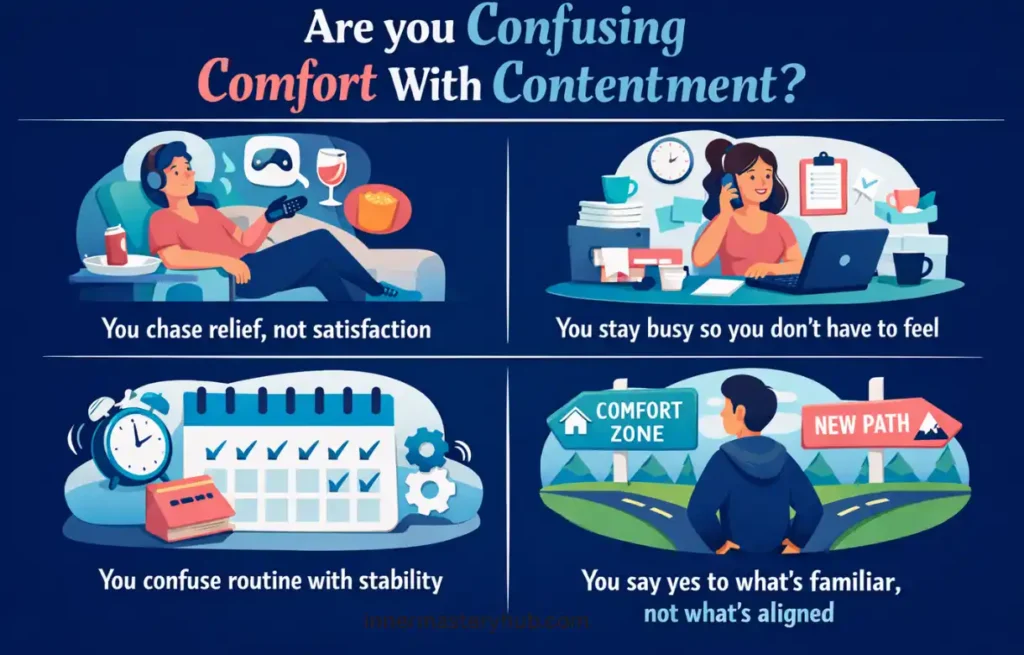Be Curious, Not Judgmental: The Key to a Fuller Life

In our journey through life, it is so easy to fall into the pattern of making snap judgments about people, situations, and experiences. Our minds often have preconceived ideas and perceptions that limit our ability to understand the world around us truly. This blog will explore the compelling concept of being “curious, not judgmental,” as inspired by an inspirational quote.
As Ted Lasso says, “Be curious, not judgmental.” This statement perfectly captures his approach, teaching us that curiosity and empathy can foster better relationships and create a positive environment.
We’ll explore why curiosity, rather than Judgment, can pave the way for richer experiences, deeper understanding, and more meaningful connections. Stick around, and let’s unfold the magic of curiosity together.
What does it mean to be judgmental?
Being judgmental means forming opinions or conclusions about people or situations, sometimes too quickly and based on surface-level traits, biases, or preconceptions. Evaluating things with strict rules can distort our understanding and empathy.
When we judge, we put people in boxes, limiting our appreciation for their complexity and uniqueness. It’s essential to avoid being judgmental because it can close us off to new perspectives, growth, and meaningful connections. So, let’s keep an open mind and embrace the richness of diversity!
Characteristics of Judgmental People
Dr. Marcum compares the traits of judgmental persons to those of more open-minded people.
According to Dr. Marcum:
Characteristics of judgmental people
- They quickly conclude that other people are based on flimsy characteristics like conduct, social standing, or appearance.
- They categorize people into inflexible groups and fail to recognize the unique differences and complexities of each individual.
- Even when fresh facts or viewpoints are presented, they remain resistant to changing their opinions.
- When information deviates from their previous beliefs, they frequently minimize or reject it.
Characteristics of open-minded people
- They are observant and open to discussing opposing ideas.
- Instead of passing Judgment on people solely on their outward appearance, they take the time to learn about other viewpoints.
- They value each person’s complexity and distinctive qualities.
- They actively seek out new information and are open to revising their opinions in response to compelling evidence.
Walt Whitman’s Perspective on Being Nonjudgmental
Walt Whitman, a renowned American poet, had a unique perspective on non-judgment. His works embrace all aspects of life with curiosity and acceptance.
“I am large, I contain multitudes,” he wrote in his poem “Song of Myself,” acknowledging individuals’ diversity without passing Judgment.
Whitman promotes a compassionate knowledge of the world by encouraging us to approach people with openness, empathy, and curiosity. His works encourage curiosity and a nonjudgmental mindset.
Replacing Judgment with Curiosity
Replacing Judgment with curiosity cultivates an open-minded environment and encourages growth and understanding. Here are some ways to make this shift:
- Rather than assuming, ask questions. Take a moment to ask questions when you are feeling judgmental. Strive for a deeper understanding of the individual or circumstance. In addition to developing empathy, this procedure extends your viewpoint.
- Engage in active listening by giving the speaker your undivided attention, acknowledging their emotions, and providing a thoughtful response. Instead of jumping to conclusions, this exercise can help you understand their perspective.
- Have a learner’s mindset. Welcome uncertainty and view every encounter as an opportunity to acquire new skills. Instead of criticizing, this mindset encourages understanding and reframes criticism as a curiosity.
- Acknowledge and value. The variety of human experiences and viewpoints is achieved by embracing diversity. This can support your transition from Judgment to comprehension and curiosity.
Characteristics of Curious People
- Inquisitive. Naturally, inquisitive people probe new areas and pose inquiries. They aren’t scared to explore topics they don’t know much about and are constantly looking to learn new things.
- Open-minded. Being curious encourages being open-minded. An interested person is open to many viewpoints, concepts, and civilizations. They know that there’s always more to learn and that a variety of perspectives can help them comprehend things more fully.
- Persistent. Curious people never give up on their goal of learning. Challenges and hurdles do not simply deter them. They see them as chances to develop and learn instead.
- Adventurous. Curious people frequently have a great spirit of adventure. They don’t hesitate to venture outside of their comfort zones to discover novel concepts, locations, or experiences. They are willing to attempt new things and take chances because of their sense of adventure.
- Observant. Those who are curious are keen observers. They observe the surroundings, picking up on patterns and subtleties that others would miss. Their ability to observe well enables them to form connections and derive fresh insights.
- Patient. The quality of patience is frequently present in inquisitive people. They are willing to devote the required amount of time to thoroughly investigate a subject because they recognize that learning is a process that requires time and effort.
- Creative. Curious people often engage in creative endeavors such as writing, music, and art because they enjoy exploring new concepts. Their insatiable curiosity drives them to come up with innovative ideas and think beyond the box.
How can curiosity overcome Judgment?
The ability to transcend Judgment is unlocked by curiosity. Now, let me illustrate. Imagine getting to know someone fresh, someone with a different appearance or a varied background.
Being curious encourages you to approach people with an open mind, rather than assuming anything about them or passing Judgment based on preconceived notions or their appearance. You may want to inquire about their experiences, viewpoints, and anecdotes.
This creates space for comprehension and empathy to flourish. You confront your prejudices, gain knowledge from one another, and develop a deep bond. This is the power of curiosity at work: it turns Judgment into curiosity while promoting respect and empathy.
Difference between curiosity and Judgment
When it comes to ourselves and others, curiosity and Judgment are two distinctly different mindsets or cognitive capacities. Curiosity is an open-minded drive to discover, comprehend, and investigate.
It challenges us to seek solutions, pose questions, and maintain an open mind to new perspectives. It gives us the motivation to value our common humanity and to accept the variety of human experiences.
On the other hand, Judgment often stems from fixed beliefs or assumptions. It tends to categorize people or situations into predefined boxes, usually limiting our ability to see the whole picture.
While Judgment usually closes doors, curiosity fosters understanding, empathy, and growth. Thus, shifting from a mindset of determination to one of curiosity can significantly enhance our interactions and relationships.
Why do we judge?
The psychology behind being judgmental:
The psychology behind being judgmental is quite complex. It’s rooted in our evolution as a species, where quick judgments were often a matter of life or death. This survival mechanism has carried over into our modern lives, manifesting as frequently unfair and hasty judgments about people and situations. The mind uses these cognitive shortcuts or heuristics to simplify the world and reduce mental processing.
However, these fast-tracked judgments often lead to overgeneralization and stereotyping in our complex, modern society. They may harm the subjects of these judgments and limit the judge’s worldview and potential for personal growth. Transitioning from a judgmental mindset to one driven by curiosity is critical in fostering personal development and meaningful social connections.
4 Benefits of Being Nonjudgmental and More Curious
- Promotes Open-mindedness. Open-mindedness can be promoted by adopting a curious and nonjudgmental perspective. Your viewpoint is enriched by a diverse, inclusive perspective that is fostered by becoming more open to various ideas, beliefs, and cultures.
- Enhances Communication. You can connect with people more authentically when you communicate with curiosity rather than Judgment. This improves your listening skills. Effective and healthy communication is essential in both personal and professional relationships, and this lays the groundwork for it.
- Encourages Lifelong Learning. Curiosity is what drives lifelong learning. When you are curious and nonjudgmental, you have a passion for information and exploration that motivates you to keep learning, exploring, and developing.
- Reduces Conflict. Conflicts and misunderstandings often arise from judgments. Conversely, curiosity fosters harmony in our relationships by reducing the likelihood of conflict and enhancing understanding and appreciation of different perspectives.
6 Ways to Be Less Judgmental
According to Dr Marcum, there are six effective ways to become less judgmental:
Pay Attention to Your Thoughts
Being mindful of our thoughts is a fantastic way to develop a nonjudgmental attitude. Let’s face it, thoughts are just that—thoughts. They are not always facts or truths. We can see patterns and biases that could lead us to reach snap, unjust conclusions when we examine our ideas without passing Judgment. What’s even more awesome, you ask?
We can better understand and sympathize with people by challenging these biases through self-reflection.
Question Your Assumptions
One of the most effective strategies to developing a nonjudgmental mindset is to challenge our presumptions continually. You see, our presumptions often serve as the foundation for our impulsive decisions, causing us to draw conclusions that the facts may not fully support.
These presumptions may distort our views and lead us to harshly judge others or their situations, as our own prejudices and experiences influence our perceptions.
To foster empathy and open-mindedness, we must attack these presumptions. The question then becomes, “Are my assumptions based on verifiable facts or influenced by my biases?”
Recognize Your Biases
Do you realize that we all have these innate biases? These are unintentional attitudes or preconceptions that influence our perceptions, behaviors, and choices.
The problem is that identifying these prejudices is an essential first step in developing a nonjudgmental mindset. Thus, begin by reflecting on yourself.
Reflect on how you feel, think, and respond to specific individuals or situations. Are there any trends that you see? Say, do you tend to assume certain things about a particular group of individuals or situations?
Or are there particular traits or actions that you make snap judgments about? While acknowledging these prejudices is essential, it does not imply endorsement of them. It is an opportunity to challenge and face them.
Be Empathetic
A strong defense against Judgment is empathy. It involves expanding our horizons, valuing diversity, and understanding and sharing the perspectives of others. Everybody’s path is different, filled with highs and lows.
We can be more sympathetic and refrain from making snap judgments thanks to this insight. Remember, empathy is the acceptance of diverse perspectives and experiences rather than agreement.
Expand Your Horizons
Developing a nonjudgmental mindset is the key to broadening your horizons. Appreciating the diversity of the world entails immersing oneself in many cultures, viewpoints, and realities. Thus, engage in dialogue with individuals who hold contrasting opinions, read books by writers and genres, and push yourself when you travel.
Learn about the beliefs, traditions, and practices that are different from your own. This desire to learn new things and develop personally helps dispel prejudice and preconceptions while allowing you to see the rich tapestry of human diversity.
Never forget that the world is full of many experiences and viewpoints; by expanding your horizons, you are enjoying this diversity rather than passing Judgment on it.
Practice Positivity
Keeping a positive outlook cultivates a nonjudgmental attitude. Taking a positive approach to things makes us more receptive and less prone to passing Judgment. While still correcting issues, we appreciate the sound by turning our attention from its shortcomings to its benefits.
Celebrate little accomplishments, practice gratitude, and foster a happy atmosphere. In addition to improving relationships with others, this practice promotes acceptance and understanding. Being positive is not only a mindset; it is a habit that we can develop.
FAQs about Be curious, not judgmental
What does “Be curious, not judgmental” mean?
It means choosing to ask questions and explore situations with an open mind, rather than immediately forming negative opinions. By practising “Be curious, not judgmental,” you allow yourself to learn more about others and their motives rather than assume you already know their story.
Why is “Be curious, not judgmental” important in relationships?
In relationships, “Be curious, not judgmental” helps you listen and understand rather than criticize or blame. When you apply that mindset, you create a space where others feel safe to share, connection deepens, and misunderstandings are less likely because you choose to explore rather than judge.
How can I practise “Be curious, not judgmental” in daily life?
Start by noticing when you’re making a snap judgment. Then ask questions: “What’s happening here? Why might this person act this way?” Applying “Be curious, not judgmental” means pausing your Judgment, being present, and inviting more information before forming conclusions.
What barriers stop us from applying “Be curious, not judgmental”?
Old habits, stress, fear of being wrong, and low self-awareness often stop us from “Be curious, not judgmental.” We default to judging because it feels quicker and safer. Recognising those habits is the first step toward shifting into “Be curious, not judgmental.”
Can “Be curious and not judgmental” help at work or in teams?
Yes. In a work environment, when you “Be curious, not judgmental,” you ask teammates for context instead of assuming incompetence or laziness. That mindset boosts collaboration, reduces conflict, and cultivates understanding rather than blaming – helping teams thrive.
Does “Be curious and not judgmental” mean accepting bad behaviour?
Not exactly. “Be curious, not judgmental” doesn’t mean ignoring wrongdoing or not holding boundaries. It means first understanding the context before reacting. You can still say “this behaviour is not okay,” but from a place of inquiry and clarity rather than immediate condemnation.






